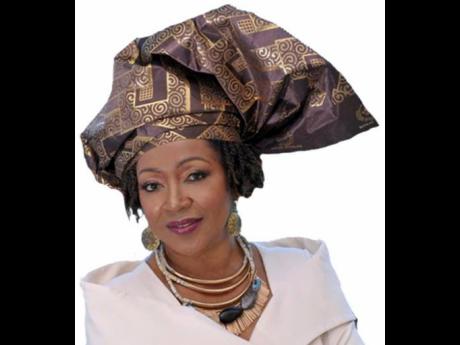Earth Today | Caribbean needs climate justice
CLIMATE CHANGE is as much a justice issue as it is an environmental issue, certainly for Caribbean islands, which bear the lingering scars of colonialism.
This is according to local researchers who suggested recently that this should be the basis of negotiations for climate financing to bolster the region’s readiness for impacts, including more extreme hurricane events that are already being experienced by the islands.
“We have all witnessed the devastation caused by the natural disasters in Jamaica and in sister Caribbean countries and other parts of the world in the past, and in more recent times where they have increased in frequency and intensity. The Caribbean, therefore, understands, with alarming clarity, the urgent need to take measures to address the issue of climate change,” said Professor Verene Shepherd, who heads the Centre for Reparation Research at The University of the West Indies.
“As a historian, I cannot help but remind us of the long genealogy of the actions that have brought us to this place. I am quite aware that a blame game without tangible solutions will get us nowhere, but that is no excuse to be a historical about this issue. In this regard, let us not dismiss the role of plantation construction and colonialism and the role they played in the reconfiguration of our environment,” she added.
Shepherd was speaking at the recent symposium on climate, history and responsibility, jointly organised by Rutgers University and The University of the West Indies (UWI) and hosted at the UWI Regional Headquarters in Kingston last month.
In the interest of agriculture development and the exploitation of Caribbean resources, colonisers who took over the region from the indigenous people who lived in sync with the environment engaged in deforestation for ... ranches and large and small plantations. Centuries of agricultural practices utilised to cultivate sugar, coffee, cotton, etc, on plantations or to create livestock farms, which included mass deforestation, have led to the erosion and loss of fertility of our soils and the loss of valuable protective forestry,” Shepherd noted, mirroring the explanation of professor of sociology at Drexel University, Mimi Sheller, who gave the keynote address at the January 30 event.
“The post-slavery unplanned settlements and efforts to eke out a living by the free people and the post-independent development which involved the turning of plant lands into housing estates, but also into hotels and attractions that did not preserve trees continued the destruction of the environment. The consequences are now all around us, manifested in rising temperatures, increasing floods, increases in the intensity of hurricanes,” Shepherd noted.
SELF-HELP
Caribbean islands have stepped up to do their part to address the problem, despite not having historical responsibility for the challenge to which the region is counted among the most vulnerable. However, Shepherd said it is necessary for those of the First World – with the historical responsibility for greenhouse gas emissions that fuel climate change and who continue to pollute – to pay.
“In truth, the Caribbean region has found itself in a post-colonial nightmare; a state of underdevelopment with insufficient resources to ameliorate the deficiencies we have inherited. We have been disadvantaged and ill-equipped and we continue to see the legacies manifested in the vulnerabilities, in the effects of climate change,” she said.
“Therefore when we talk about climate change and climate justice, we have to talk about reparatory justice,” she added.
Professor Michael Taylor, himself a celebrated climate scientist, has added his own voice for a look at climate change and the pursuit of solutions through the lens of justice.
“This is a timely and important discussion, given the Caribbean climate realities of the last few years, which, if you forget, let me name them: Irma, Maria, Jose and Dorian,” he insisted.
“Indeed, I do not think there is anybody in this room who is in doubt that this is a significant issue for our Caribbean. There are several other ways outside of Category 5 Hurricanes in which climate change is already manifesting itself in the Caribbean. We have seen warmer air and ocean temperatures, erratic rainfall regimes, stronger weather extremes and higher sea levels,” added Taylor, a physicist and dean of the Faculty of Science and Technology at the UWI.
The time to act, he suggested, is now, and especially given the realities of vulnerable groups existing within the borders of vulnerable Caribbean states.
“There are several levels of inequity attendant with climate change. These include, for example, the issues associated with economically marginalised countries, which use comparatively far less fossil fuel-based energy, but which feel the biggest impact,” said the scientist who is one of the lead authors for the Intergovernmental panel on Climate Change special report on 1.5 degrees Celsius of global warming.
“There is also the plight of the new emerging climate-vulnerable groupings in the Caribbean which has yet to be really taken up. These include the very young, the aged, the poor, the outdoor workers, the physically challenged, our cultural assets, those who depend on coastal livelihoods, the bio-sensitive fauna and flora, just to name a few,” he added.
“And then there are also the inequalities of access to resources to respond to the challenges of climate change, including resources of adaptation, for ensuring equitable access to climate information, and of course resources for education,” Taylor said further.

